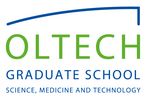Content
The workshop – “Scientific Image Processing and Analysis” aims to teach natural scientists from different areas of life science how to handle and process digital images starting from e.g. microscopic image acquisition until the incorporation into the final publication figure. This includes important theory about high quality digital images in general (e.g. how to achieve good resolution) as well as a broad spectrum of methods for scientifically correct image processing and specific analytical purposes according to high scientific standards. You will learn how to extract different types of information from your images and how to quantify objects and intensities. Additionally, the workshop includes a lot of hands-on sessions, methods to automate repetitive tasks to decrease time investment while reducing user bias. Furthermore, it provides some guidelines for do's and dont's during publication figure preparation.
You will be able to revisit the learned material using the provided exercises and script also later on. The workshop content is generally of importance for scientists working with digital images and their analysis but has a strong focus on microscopy! Optional topics will be adjusted to meet the participants needs as good as possible if there is time left.
Furthermore, specific participant question regarding image processing or solutions for analysis issues can be personally discussed if communicated beforehand (e-mail with question and example images).
Specific Topics (among others)
- Basics about correct microscopic image acquisition
- How to achieve good image resolution (sampling)
- Image formats - which formats serve scientific images and which should be avoided
- Metadata and other important information saved beyond the visible image
- The image histogram and color spaces.
- Correct image adjustments avoiding alterations - contrast and brightness, image rotation, size changes,
- Different image/purpose dependent background subtraction/modification methods.
- Use of different image filters to improve extractability and preparation for further analysis
- Image segmentation - How to extract specific objects of interest (e.g. cells positive for a certain marker stain)
- Automated object counting
- Dimension scaling and intensity calibration of images
- Image Quantifications (selected topics depending on participants field of interest):
- Measurements of areas, length, …
- How to correctly measure intensities in images (e.g. fluorescence)
- Labeling of images and time series/movies (text, numbers, scale bars, calibration bars,…)
- Ethics in image handling, processing and publication - where are the limits?!
- Guidelines for publication figure preparation.
Aim
The workshop should give scientists a better understanding about the Do's and Don'ts during digital image processing and insight in the methodology of extracting a multiplicity of information from their images. The participants will gain extensive knowledge about the possibilities to analyze their imaging data using only one software (Fiji).
Target Group
PhD Students and PostDocs which are working or plan to work with digital (micrograph) images. The workshop has a strong focus on microscopic images and life science applications but most of the workshop content also applies for digital images of different origin in general. No previous software knowledge required.
Methodology
During the practical parts of the workshop we will use the professional software Fiji (customized ImageJ bundle). All necessary software will be provided and installed during the workshop. Software is free to use (open source).
Credit points: 1,5 ECTS
Registration via Stud.IP (winter semester 2022/2023) required!
organized by OLTECH – oltech(at)uni-oldenburg.de



